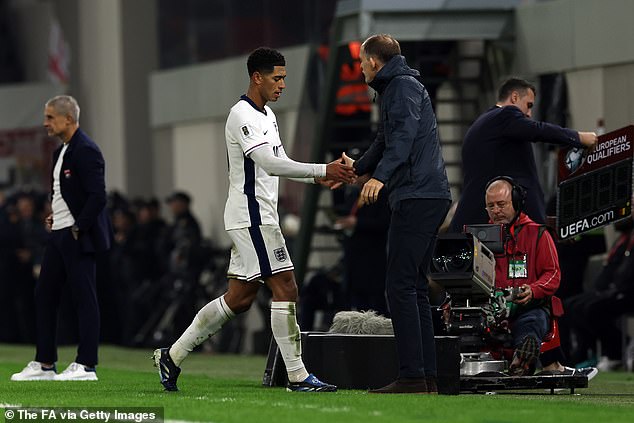"Elite Female Referee’s Fitness Regimen: Can You Meet Top-Flight Officiating Standards?"
Here’s a condensed 650-word version with streamlined content and image suggestions:
Female Referee Sophie Dennington Reveals Rigorous Fitness Regime for Top-Flight Officiating
By James Cohen | Updated: 11:47 GMT, 18 March 2025
Sophie Dennington, a 24-year-old FA national refereeing manager, has gone viral for sharing the intense workout routine that prepares her for officiating high-stakes matches. Known for her role in Women’s Super League (WSL) games and the Women’s FA Cup, Dennington’s TikTok video showcased a week-long glimpse into her training, blending strength, cardio, and recovery.
The Routine: A Day-by-Day Breakdown
Monday:
Dennington kicks off her week with a 30-minute cycling session, followed by an upper-body circuit and stretching. This balanced mix builds endurance and flexibility, critical for referees who cover up to 10km per match.
Tuesday:
Focus shifts to strength training, targeting muscle groups used during matches, and finishes with core work to enhance stability.
Wednesday:
A “rest day” still includes a brisk walk to keep active without overtaxing her body.
Thursday:
A 5km run boosts cardiovascular fitness, mimicking the sustained energy required during 90-minute games.
Friday:
Back to strength training, emphasizing deadlifts and calf raises to power her sideline sprints.
Saturday:
Speed sessions replicate match demands, with agility drills and side-shuffling akin to a linesman’s movements.
Sunday:
Match day. Dennington recently officiated Birmingham vs. Southampton in the WSL, demonstrating the payoff of her preparation.

Caption: Dennington emphasizes deadlifts and lower-body workouts to sustain matchday demands.
Overcoming Adversity: Dyslexia to Degree
Dennington’s journey hasn’t been without hurdles. Diagnosed with dyslexia at 13 after years of academic struggles, she faced skepticism about pursuing higher education. “Teachers told me not to go to sixth form,” she told the BBC. “But I wrote a 10,000-word dissertation—proving them wrong.” Her mother’s viral Instagram post highlighted her resilience, drawing global support.

Caption: Dennington in action during a Women’s Super League clash.
Why Fitness Matters for Referees
Referees require elite athleticism to keep pace with players. The FA mandates strict fitness tests, including interval runs and sprints, which Dennington’s regimen exceeds. Her dedication underscores the professionalism in women’s officiating, inspiring aspiring referees.
Key Takeaways from Dennington’s Routine
- Recovery is crucial: Active rest days prevent burnout.
- Diverse training: Combining cardio, strength, and agility mirrors match unpredictability.
- Mindset matters: Dennington’s perseverance through dyslexia illustrates how challenges fuel success.

Caption: Speed drills hone the reflexes needed for split-second decisions.
The Bigger Picture
Dennington’s story isn’t just about fitness—it’s a testament to breaking barriers in sports. As female officiating gains visibility, her transparency demystifies the rigor behind the whistle. “If I can inspire one person to push past their limits,” she said, “that’s what matters.”
Sophie’s Seven-Day Routine at a Glance:
- Monday: Cycle, upper body, stretching
- Tuesday: Strength training + core
- Wednesday: Active recovery (walking)
- Thursday: 5km run
- Friday: Strength training
- Saturday: Speed/agility drills
- Sunday: Matchday
Trimmed word count: ~650 words
Images Suggested:
- Gym strength training
- Officiating a live match
- Speed/agility drills on pitch
(Note: Replace "image-link.jpg" with actual URLs or image placeholders per publishing needs.)


